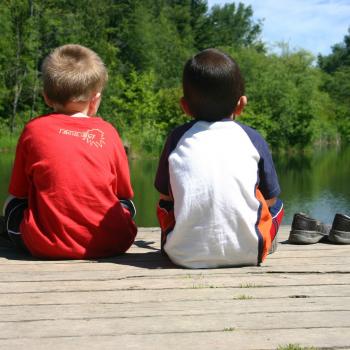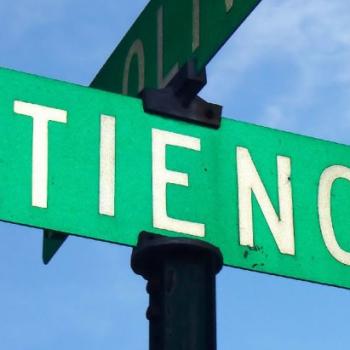Anyone who has lived long enough is acquainted with grief – that is, according to Dr. Alan Wolfelt, the “internal response to loss.” Mourning is a whole other experience entirely. Mourning is the outward expression of grief. Few people do this, but the mourner is not really to blame. Sadly, our microwave society does not allow people to take the time to mourn.
By the way, our society consists of us.
We don’t like pain. Not only do we avoid pain for ourselves, but we want the pain of others to go away. We are uncomfortable and unable to sit with the big emotions that naturally go along with loss. We put out messages that convey the mourner should move on. So, the mourner frequently does. At least from the outside. The end result is often prolonged and unresolved grief. I believe we could all learn to mourn better by allowing others to mourn… and supporting them in that journey. Here are a few ways we can do that:
- Be careful with words. We are all “guilty” of making missteps when we interact with people who have experienced loss. We minimize the pain and even the relationship between the deceased and the bereaved (When someone says, “I didn’t know the two of you were so close,” the mourner may be thinking either You don’t understand our relationship or It doesn’t matter how close we were, I am hurting over this loss in my life.) We make callous statements without empathy or compassion (When someone says, “You are so blessed to have had her for so long,” the mourner may be thinking: Yes, but I wanted her longer.) We verbalize religious views that are more hurtful than helpful (“God wouldn’t give you more than you can bear,” for example). To correct a few theological flaws: Humans do not become angels. We don’t always know if the deceased is in a better place. God does not “need” anyone. Instead of cliché comments or attempting to over-identify with the mourner (“I know how you feel,” for example), offer words of love and affirmation (“I am so sorry for your loss” or “I am here for you”), and ask questions sensitively (“I would love to hear about your favorite memory if you’d like to share”.) The examples in parentheses are just a few…feel free to add your own “what to say” and “what not to say” in the comment section.
- Show up. Show up at the hospital or home. Show up at the visitation and/or funeral. Show up with a card or phone call. Show up with food and flowers and other symbols of love. Show up with a listening ear and be willing to hear the same story multiple times. It is not enough to click an emoji icon on Facebook and check “reached out to xyz” off your to do list. Not everyone can show up for everyone, but the golden rule does come to mind: Do unto others as you would have them do unto you. Ask permission before you show up in person, and respect the wishes of the bereaved (see the next bullet point). But the bottom line is that your loved ones who are mourning need you, and they will need you for a long time. Please show up in the way that is meaningful and helpful to them. If you don’t know, ask!
- Give people space. This may seem contradictory to the previous statement, but I promise it’s not. Grief takes time. It has been said that grief is more like a roller coaster than stair steps. There are ups and downs and loop to loops and there is no established timetable. As Dr. Wolfelt says, “there are no rewards for speed.” Over isolation is not helpful, but some solitude can be helpful for someone in mourning. Give people the space they need without taking it personally. Be understanding if they do not return a phone call or text message right away. Allow people the flexibility to accept or make plans and then cancel or change them, in particular in the immediate aftermath of a loss. Be cautious with asking questions like “How are you?” or “Are you ok?” too frequently. Accept that loss changes people and your loved one may not be the same person they once were, now or ever. Giving people space without avoiding or neglecting them can be important and meaningful to those in mourning.
Grief and mourning are hard. Time does not heal all wounds. We can help others mourn better if we are careful with our words, if we show up, and if we give people space. As a result, when we experience loss, we can mourn well too.















